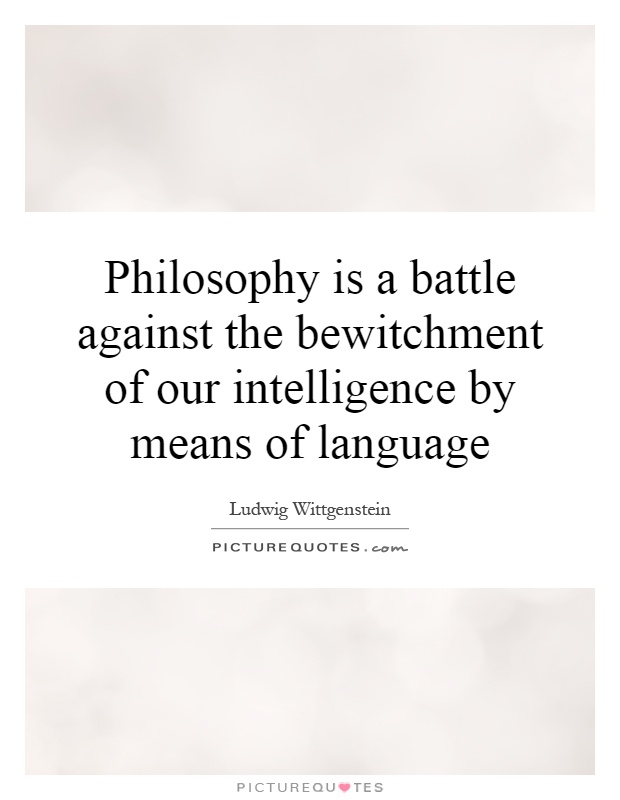Philosophy is a battle against the bewitchment of our intelligence by means of language

Philosophy is a battle against the bewitchment of our intelligence by means of language
Ludwig Wittgenstein, one of the most influential philosophers of the 20th century, famously stated that “Philosophy is a battle against the bewitchment of our intelligence by means of language.” This quote encapsulates Wittgenstein’s belief that language can often lead us astray and prevent us from truly understanding the world around us.Wittgenstein’s philosophy is deeply concerned with the nature of language and its relationship to reality. He believed that language is not simply a tool for communication, but also shapes the way we think and perceive the world. In his early work, the Tractatus Logico-Philosophicus, Wittgenstein argued that language is a system of symbols that represent the world, and that the meaning of a proposition is determined by its correspondence to reality. However, he later came to reject this view, realizing that language is much more complex and ambiguous than he had previously thought.
In his later work, particularly in the Philosophical Investigations, Wittgenstein explored the ways in which language is used in everyday life and how it can lead to misunderstandings and confusion. He argued that language is not a fixed and precise system, but rather a fluid and dynamic form of communication that is constantly evolving. Wittgenstein believed that many philosophical problems arise from a misuse of language, where words are used inappropriately or without a clear understanding of their meaning.
For Wittgenstein, the task of philosophy is to uncover and expose the ways in which language can deceive us and lead us to false conclusions about the world. By examining the ways in which language is used in different contexts, we can begin to see how our thinking is influenced by the words we use. Wittgenstein’s philosophy is a call to be vigilant and critical of the language we use, and to constantly question and challenge our assumptions about the world.












 Friendship Quotes
Friendship Quotes Love Quotes
Love Quotes Life Quotes
Life Quotes Funny Quotes
Funny Quotes Motivational Quotes
Motivational Quotes Inspirational Quotes
Inspirational Quotes